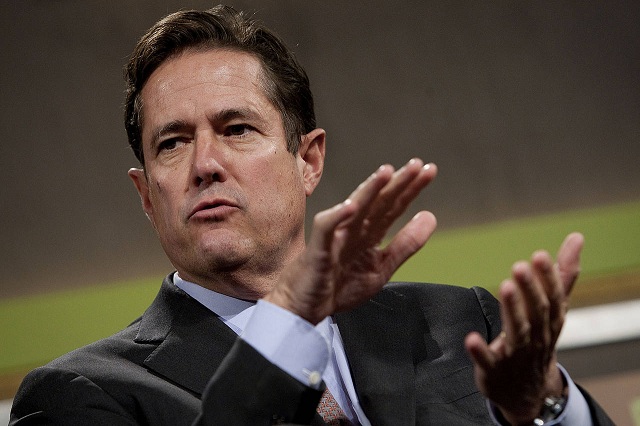Barclays confirms Africa exit

BARCLAYS Plc will sell its Africa business within the next two to three years as part of a plan by new Chief Executive Jes Staley to simplify the bank’s structure and seek higher shareholder returns, after reporting a two percent profit drop and slashing its dividend.
The British bank said yesterday that it planned to sell its 62 percent stake in Barclays Africa Group over the next two to three years, ending its presence on the continent after more than a century and becoming a “transatlantic” bank focused on the United States and Britain.
The move by Barclays Bank Plc, which also owns 68 percent of Barclays Bank Zimbabwe Limited, would see Barclays ending its 104-year history in Zimbabwe, where it has run the second oldest bank after fellow British bank Standard Chartered.
The bank said it would then concentrate on two divisions, Barclays UK and Barclays Corporate and International, to comply with ring-fencing regulations aimed at safeguarding its retail banking business from riskier operations.
Barclays is “fundamentally on the right path,” Staley said in his first results announcement since taking over one of the most prominent roles in British business in December.
Adjusted pre-tax profit fell to 5.4 billion pounds ($7.5 billion) for the year to December 31, from 5.5 billion pounds a year earlier, below an average forecast of 5.8 billion pounds.
The bank said it was cutting its dividend to three pence per share from 2016 from 6.5p in 2015, a move Staley said would help Barclays maintain capital levels while it disposes of unwanted assets. Its shares fell as much as 10.5 percent.
Staley said he was liberating Barclays from businesses and investments that were legacy related but that had no strategic value or showed no prospect of future profits.
“We’re going to address these matters head on,” he said. “We’ll put these issues behind us in 2016 . . . by simplifying our core business.”
Barclays Africa reported a 10 percent increase in profit for 2015 yesterday, hours before the UK holding company announced it would exit the business. The business that includes Absa announced that headline earnings increased 10 percent to R14,287m from R13,032m in its financial results ended December 31, 2015. Diluted headline earnings per share also grew 10 percent to R16.86 from R15.38.
It said the rest of Africa headline earnings grew 17 percent to R2.3bn and South Africa rose eight percent to R12bn. About 80 percent of the bank’s profits come from South Africa.
Staley told reporters he was comfortable with the bank’s capital position, dismissing some concerns that Barclays might need cash call to bring its common equity Tier 1 (CET1) ratio, a key measure of financial strength, closer in line with rivals. The bank’s CET1 stood at 11.4 percent, from 10.3 percent a year earlier, while its leverage ratio improved to 4.5 percent.
“While we believe that the cut in dividend will be taken negatively initially, it will help to allay fears of capital weakness,” analysts at Haitong Research wrote.
In the few months since Staley’s appointment, Barclays has made sweeping cuts across its investment bank and exited several businesses including in Asia, aiming to trim costs, reduce risk and shore up its balance sheet.
However, legacy issues continue to hurt the bank, with 4.01 billion pounds of provisions made against an array of regulatory missteps, compared with 2.36 billion a year earlier.
Barclays made an additional provision in the fourth quarter of 1.45 billion pounds for mis-selling loan insurance, more than doubling its total for the year to 2.77 billion.
It has set aside 7.42 billion in total to compensate customers.
It also said it is cooperating with the US department of Justice and the SEC on an investigation into its hiring practices in Asia, becoming the latest bank to disclose involvement in the wide-ranging probe.
Barclays said it will pay ousted CEO Antony Jenkins 3.4 million pounds for 2015, including a pro-rata bonus of 505,000 pounds. Its total bonus pool shrank 10 percent to 1.67 billion. — Reuters/Fin24/Business Reporter







Comments